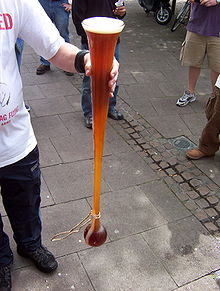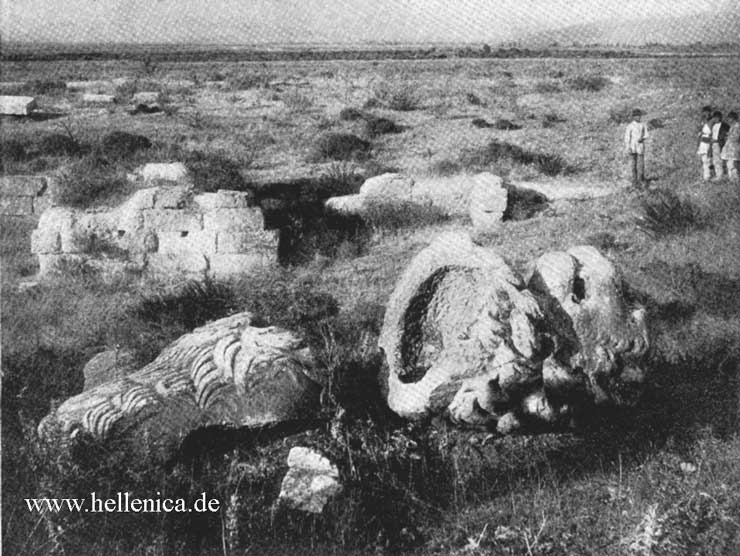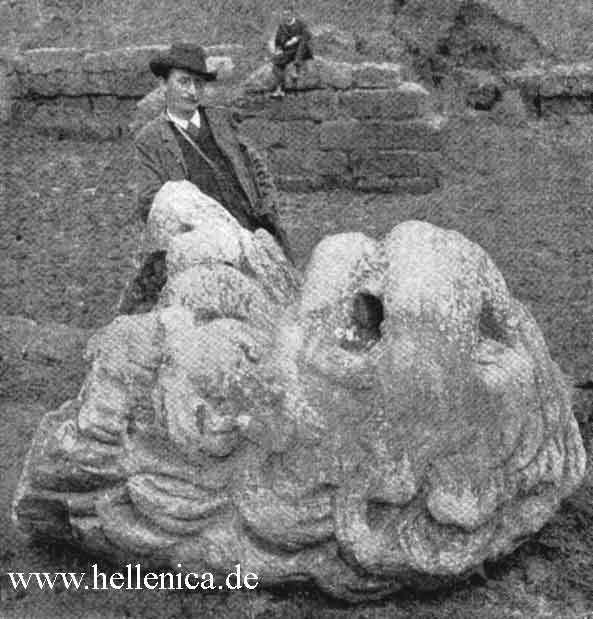This week, we're pleased to welcome author and Unusual Historicals contributor JUDITH STARKSTON with her newest novel, HAND OF FIRE. One lucky visitor will get a free copy of Hand of Fire. Be sure to leave your email address in the comments of today's author interview for a chance to win. Winner(s) are contacted privately by email. Here's the blurb.
 The Trojan War threatens Troy’s allies and the Greek supply raids spread. A young healing priestess, designated as future queen, must defend her city against both divine anger and invading Greeks. She finds strength in visions of a handsome warrior god. Will that be enough when the half-immortal Achilles attacks? Hand of Fire, a tale of resilience and hope, blends history and legend in the untold story of Achilles’s famous captive, Briseis.
The Trojan War threatens Troy’s allies and the Greek supply raids spread. A young healing priestess, designated as future queen, must defend her city against both divine anger and invading Greeks. She finds strength in visions of a handsome warrior god. Will that be enough when the half-immortal Achilles attacks? Hand of Fire, a tale of resilience and hope, blends history and legend in the untold story of Achilles’s famous captive, Briseis.
Tell us about Hand of Fire and why you chose to write about Briseis?
Hand of Fire tells the story of Briseis, the captive woman from Homer’s Iliad who caused the bitter conflict between Achilles and Agamemnon during the Trojan War. She has practically no voice in the male-centered epic; I wanted to discover her as a flesh and blood woman.
I was asked a really good question at my book launch: does a reader need to be familiar with the Iliad to read my book? Absolutely not! My primary critique partner has never read the Iliad, and she was invaluable for keeping me true to that goal.
Hand of Fire is partly a romance—Briseis and Achilles fall in love but in an unconventional manner that includes a mystical element. Achilles is half-immortal and I made full use of that half of his conflicted personality.
In addition to the romantic element, Hand of Fire explores why some people, women especially, can survive great tragedy and violence against them, even managing to experience joy in what life still has to offer.
It is a coming of age tale featuring a smart, strong-willed young woman in an ancient culture (Trojan/Hittite) that, counter to our modern stereotypes of the past, expects Briseis to be powerful, literate and a leader. Briseis succeeds in rising to those expectations despite the circumstances arrayed against her—and she’s strong enough to take on the mightiest of the Greek heroes.
How did you research the historical background to the story and did you discover anything surprising along the way?
The Trojans and their allies (such as Briseis’s city of Lyrnessos) are culturally and politically related to the powerful empire of the Hittites that ruled what we think of as Turkey throughout the Late Bronze Age (around 1250 BCE). Troy was a semi-independent kingdom of the Hittites. As a classicist, I knew a fair amount about the Mycenaean Greeks when I started writing, but the Hittites were a delightful new realm of exploration for me—and that’s Briseis’s world.
I spent a lot of time at university libraries, pouring through dry stuff like archaeological site reports (which produce both an urgent need for napping and great juicy details if you stick with it—fortunately for my readers, I do the culling). I also travelled extensively in Turkey and Greece, meeting with archaeologists at key sites and examining museum collections.
The big surprise for me was the Hittite culture that has come to light in the last couple decades, especially as the recently excavated cuneiform clay tablet libraries have been translated. We have a rich historical record of these people—including details very handy for a historical fiction writer like political intrigues, treaties, religious practices, magical rites and customs of daily life. I found Briseis’s “job description” right there in the tablets. It was a joy that these authentic sources described a role so perfect for the woman I had imagined confronting the war and Achilles and finding love and joy in life no matter how hard the Greeks made that for her.
What do you hope readers take away from your book?
Despite being a book about war with a lot of death and violence, the fundamental theme of Hand of Fire is one of hope. I think people will come away with a renewed sense of the resiliency of humanity and of women in particular.
Also, my aim was to build the Bronze Age world of these Greeks and Trojans vividly enough that readers feel like they’ve lived there. For most people, that’s a new and exotic world and yet it will feel surprisingly familiar in some ways. I guess you could call Hand of Fire historical escapism with a positive message.
Can you tell us what you are writing next?
I’m in the middle of a historical mystery featuring the Hittite Queen Puduhepa as “sleuth.” She would be as famous as Cleopatra if she hadn’t been buried by the sands of time. Her seal is on the first extant peace treaty in history next to her foe, Pharaoh Ramses II. Now that both her world and her correspondence have been excavated, I’ve started a series about her. She ruled from her teens until she was at least eighty, so I think this series may outlast me!
I’m also outlining a sequel to Hand of Fire—and Briseis may make a move to Cyprus. It’s such a gorgeous and intriguing island, covered in Bronze Age ruins, with several qualities that make it perfect for her. But as readers of Hand of Fire will realize, Briseis has got some business to take care of nearer to home before that happens.
 The Trojan War threatens Troy’s allies and the Greek supply raids spread. A young healing priestess, designated as future queen, must defend her city against both divine anger and invading Greeks. She finds strength in visions of a handsome warrior god. Will that be enough when the half-immortal Achilles attacks? Hand of Fire, a tale of resilience and hope, blends history and legend in the untold story of Achilles’s famous captive, Briseis.
The Trojan War threatens Troy’s allies and the Greek supply raids spread. A young healing priestess, designated as future queen, must defend her city against both divine anger and invading Greeks. She finds strength in visions of a handsome warrior god. Will that be enough when the half-immortal Achilles attacks? Hand of Fire, a tale of resilience and hope, blends history and legend in the untold story of Achilles’s famous captive, Briseis.
**Q&A with Judith Starkston**
Tell us about Hand of Fire and why you chose to write about Briseis?
Hand of Fire tells the story of Briseis, the captive woman from Homer’s Iliad who caused the bitter conflict between Achilles and Agamemnon during the Trojan War. She has practically no voice in the male-centered epic; I wanted to discover her as a flesh and blood woman.
I was asked a really good question at my book launch: does a reader need to be familiar with the Iliad to read my book? Absolutely not! My primary critique partner has never read the Iliad, and she was invaluable for keeping me true to that goal.
Hand of Fire is partly a romance—Briseis and Achilles fall in love but in an unconventional manner that includes a mystical element. Achilles is half-immortal and I made full use of that half of his conflicted personality.
In addition to the romantic element, Hand of Fire explores why some people, women especially, can survive great tragedy and violence against them, even managing to experience joy in what life still has to offer.
It is a coming of age tale featuring a smart, strong-willed young woman in an ancient culture (Trojan/Hittite) that, counter to our modern stereotypes of the past, expects Briseis to be powerful, literate and a leader. Briseis succeeds in rising to those expectations despite the circumstances arrayed against her—and she’s strong enough to take on the mightiest of the Greek heroes.
How did you research the historical background to the story and did you discover anything surprising along the way?
The Trojans and their allies (such as Briseis’s city of Lyrnessos) are culturally and politically related to the powerful empire of the Hittites that ruled what we think of as Turkey throughout the Late Bronze Age (around 1250 BCE). Troy was a semi-independent kingdom of the Hittites. As a classicist, I knew a fair amount about the Mycenaean Greeks when I started writing, but the Hittites were a delightful new realm of exploration for me—and that’s Briseis’s world.
I spent a lot of time at university libraries, pouring through dry stuff like archaeological site reports (which produce both an urgent need for napping and great juicy details if you stick with it—fortunately for my readers, I do the culling). I also travelled extensively in Turkey and Greece, meeting with archaeologists at key sites and examining museum collections.
The big surprise for me was the Hittite culture that has come to light in the last couple decades, especially as the recently excavated cuneiform clay tablet libraries have been translated. We have a rich historical record of these people—including details very handy for a historical fiction writer like political intrigues, treaties, religious practices, magical rites and customs of daily life. I found Briseis’s “job description” right there in the tablets. It was a joy that these authentic sources described a role so perfect for the woman I had imagined confronting the war and Achilles and finding love and joy in life no matter how hard the Greeks made that for her.
What do you hope readers take away from your book?
Despite being a book about war with a lot of death and violence, the fundamental theme of Hand of Fire is one of hope. I think people will come away with a renewed sense of the resiliency of humanity and of women in particular.
Also, my aim was to build the Bronze Age world of these Greeks and Trojans vividly enough that readers feel like they’ve lived there. For most people, that’s a new and exotic world and yet it will feel surprisingly familiar in some ways. I guess you could call Hand of Fire historical escapism with a positive message.
Can you tell us what you are writing next?
I’m in the middle of a historical mystery featuring the Hittite Queen Puduhepa as “sleuth.” She would be as famous as Cleopatra if she hadn’t been buried by the sands of time. Her seal is on the first extant peace treaty in history next to her foe, Pharaoh Ramses II. Now that both her world and her correspondence have been excavated, I’ve started a series about her. She ruled from her teens until she was at least eighty, so I think this series may outlast me!
I’m also outlining a sequel to Hand of Fire—and Briseis may make a move to Cyprus. It’s such a gorgeous and intriguing island, covered in Bronze Age ruins, with several qualities that make it perfect for her. But as readers of Hand of Fire will realize, Briseis has got some business to take care of nearer to home before that happens.
Website: JudithStarkston.com
Twitter: @JudithStarkston
Facebook: JudithStarkston
Google+: +JudithStarkston
Current Book List
Hand of Fire, (Fireship Press, 2014)
SoWest: Desert Justice, story entitled “Season for Death” (Desert Sleuths Sisters in Crime Anthology)



















